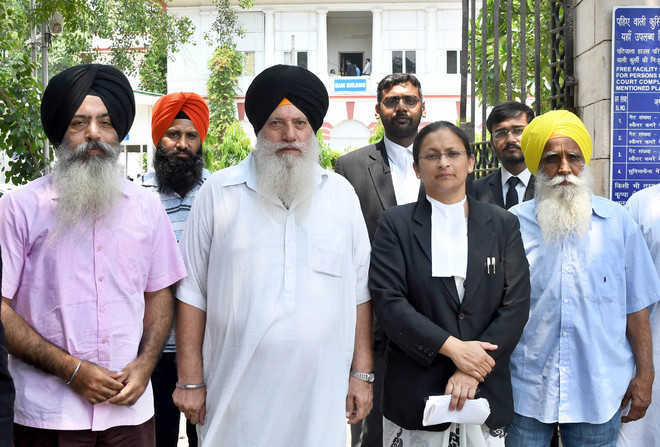Satya Prakash
Tribune News Service
New Delhi, August 26
Thirty-seven years after an Indian Airlines plane with 111 passengers and six crew members on board was hijacked to Lahore on its way from New Delhi to Srinagar, a Delhi Sessions Court is likely to pronounce its verdict in the case on Monday.
Two of the five Sikh hijackers have been tried on charges of waging war against the state in connection with the case.
Additional Sessions Judge Ajay Pandey will decide the fate of accused Satnam Singh and Tejinder Pal Singh - who have already served life term in Pakistan in connection with the crime.
Satnam - who was 30-year-old at the time of the offence - has turned 67 while Tejinderpal is a year younger than Satnam.
Granted bail on July 20, 2017, the two accused have been asked to remain present in the court at the time of pronouncement of the verdict on Monday.
After serving their sentence in Pakistan, Tejinder Pal and Satnam had moved to Canada and the US, respectively, and were deported to India in 1998 and 1999 in connection with the September 29, 1981 incident.
The other three alleged hijackers -- Gajinder Singh, Jasbir Singh and Karan Singh -- are not in India.
The case
— Two Sikh militants deported from Canada and US tried on charges of waging war against State for the September 29, 1981 incident
— The duo has sought acquittal on ground of double jeopardy as they had already served life term in Pakistan for the crime
— Prosecution says the accused were not tried and sentenced in Pakistan for waging war against Indian State
Belonging to Dal Khalsa, the hijackers had demanded the release of Sikh preacher and head of Damdami Taksal Jarnail Singh Bhindrawale who was arrested on September 20, 1981 in a murder case. Later, he was killed during Operation Bluestar in 1984.
Lawyer for the accused, Harpreet Singh Hora said, "We expect the judge to throw out the prosecution case and our clients will be free. The evidence does not stand the rigours of the IPC, CrPC, the Indian constitution and Supreme Court judgments."
Terming the trial "illegal" per se, Kanwarpal Singh of Dal Khalsa said, "It's a litmus test of Indian judiciary."
The accused duo contended that they had already served life sentence in Pakistan and spent 36 years of their life in litigation.
Calling it a "classic example of double jeopardy", they submitted that since they had already served life term for the crime in Pakistan, they can't be tried again in India on the same set of facts. It would violate their fundamental right under Article 20(2) of the Constitution and Section 300 of the Criminal Procedure Code, they submitted.
However, the prosecution contended that the principle of double jeopardy did not apply as the offences for which they were tried and convicted in Pakistan were different from the ones mentioned in the charge sheet filed in a Delhi court.
But the accused contended the incident of hijacking was one piece of act and a fresh case under a different provision of law amounted to violation of the principle of double jeopardy under Article 20(2) of the Constitution.
The Delhi police had filed a supplementary charge sheet in a Delhi court on September 29, 2011 under charges of sedition and waging war against the State.
In May 2017, the Delhi High Court had refused to quash the supplementary charge sheet against the accused and asked them to face trial.
However, the trial court dropped sedition charges against the accused in May 2018 and they have been tried only for waging war against the State.
Unlock Exclusive Insights with The Tribune Premium
Take your experience further with Premium access.
Thought-provoking Opinions, Expert Analysis, In-depth Insights and other Member Only Benefits
Already a Member? Sign In Now










